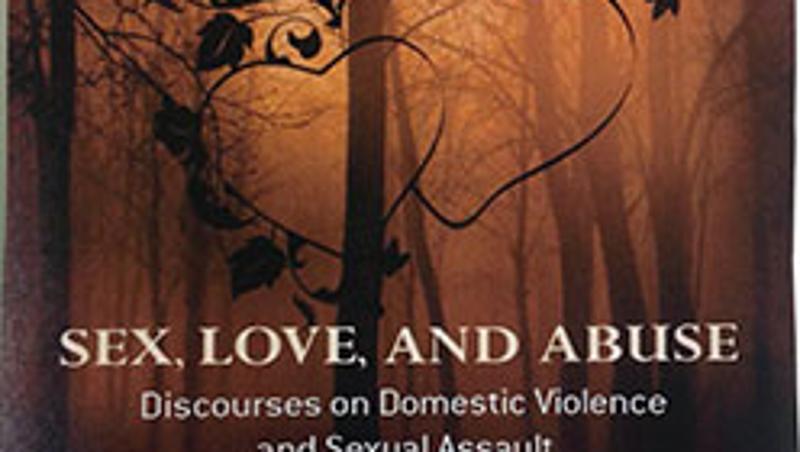
Women often find it difficult to leave abusive partners because they have been socialised into believing it is their role to 'fix' an unhappy marriage, according to QUT criminologist Associate Professor Sharon Hayes in her recently released book Sex, Love and Abuse: Discourses on Domestic Violence and Sexual Assault.
Professor Hayes said that popular media romanticises abuse. Disney 'princess' movies, for example, which are aimed at young children, and the Twilight series of movies for adolescents, both instil the message that women are nurturers and therefore the ones who should 'fix' a relationship.
"This message runs through much of popular culture," Professor Hayes said.
"Take Disney's Beauty and the Beast. Belle is captured by the Beast who is nasty and mean to her. She sacrifices herself for her father and by being sweet and loving to the Beast manages to turn him into a nice fellow," she said.
"In Twilight, the main character Bella falls for a vampire who treats her badly and begs him to kill her so she can stay with him forever, leaving everything she knows behind.
"The whole story is quite sick."
Professor Hayes said that in real life an abusive partner initially may be very charming and attentive.
"Once the woman is sucked in, however, the façade will drop. When he starts being abusive, she is surprised because it seems so uncharacteristic, but because she is 'in love' she tries to fix it. She doesn't perceive it as abuse. She sees her partner as 'needing help'."
She said emotional abuse, which erodes a woman's self-confidence so that she doubts her own memories and feelings, often occurred in the form of 'gaslighting'.
"Gaslighting is when a partner changes facts around and tries to convince you that you are wrong, when you know you're right, and makes you believe you aren't remembering correctly. If you provide evidence for your position, they get angry.
"The partner convinces the woman it is her fault, and as a result she becomes compliant."
As part of the research for the book, Professor Hayes analysed online discussion forums for victims of domestic violence and concluded that women were inclined to make excuses for their partner such as "he's had a disturbed childhood" or "he's been damaged".
"Other themes suggest that often women blame each other and themselves when their partners abuse them," Professor Hayes said.
"Because they have been socialised into believing in an ideal of romantic love that tells them if they are nice enough and kind enough they can make their partner change, they persist in trying to bring this about.
"This is the underlying cause of much domestic violence, particularly emotional and psychological abuse, and why women find it so hard to leave."
Professor Hayes said men, on the other hand, were socialised into having a sense of entitlement.
"Not all men are abusive of course. However, men, too, are given strong messages in popular culture - that they are entitled to power, particularly power over women.
"Take Dolce and Gabbana ads. There is one where a woman is lying on her back with four or five men holding her down. This is meant to be sexy and attractive.
"Another example is Maxim magazine which publishes the 'Hot 100' women every year. In 2013 Miley Cyrus was rated number one. On the cover she is posed with her arms up against a wall like a shackled prisoner, bare-backed with ripped jeans and a leash-like chain hanging down her back. Her expression shows she is ready to submit.
"We bring boys up to be kings of the castle. We tell them they'll be rock stars and when that doesn't happen they compensate by denigrating women and treating them like objects because it makes them feel powerful."
Professor Hayes said her book has attempted to highlight some of the more elusive issues concerning gender, violence and abuse, namely, why women accept being abused or fail to leave.
"It considers how destructive discourses of romance are to our relationships and personal identities, and how ubiquitous sexism and misogyny are in a society in which everyone is supposed to be equal - issues that tend to be 'the elephants in the room' in discussions of violence against women."
Professor Hayes' book Sex, Love and Abuse, Discourses on Domestic Violence and Sexual Assault is published by Macmillan.
Media contact: Niki Widdowson, QUT media, 07 3138 2999 or n.widdowson@qut.edu.au


